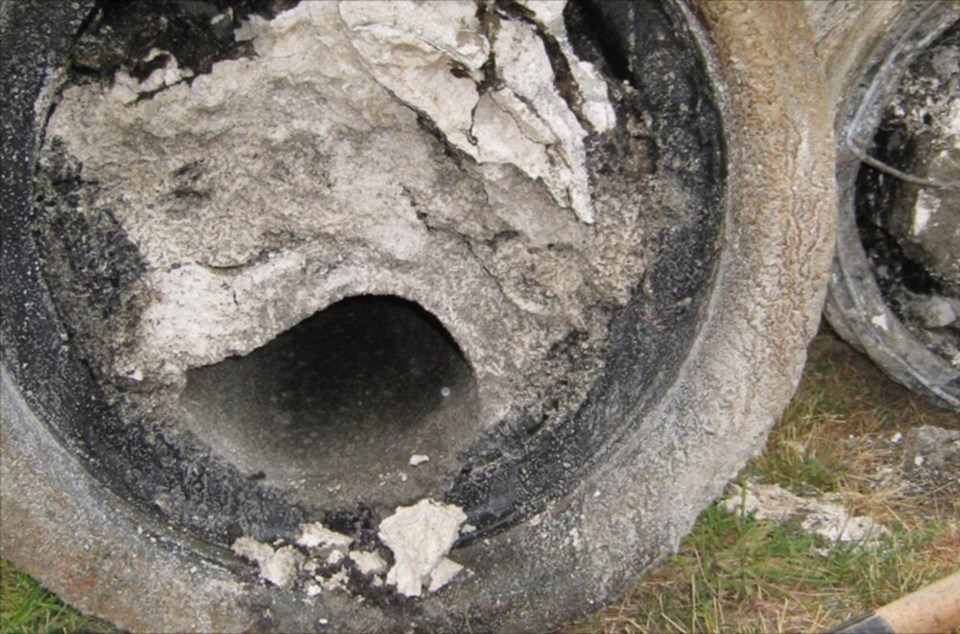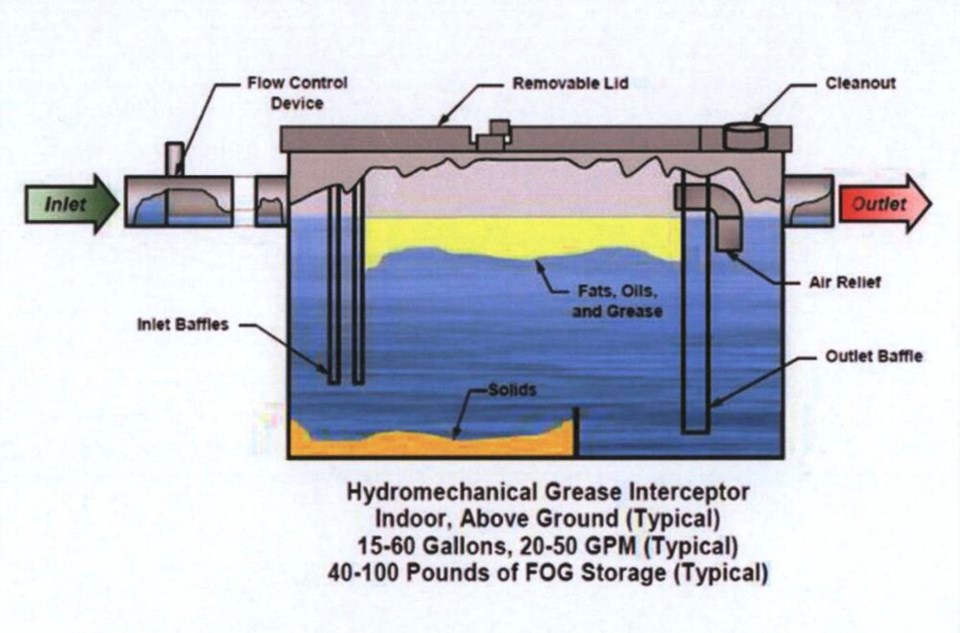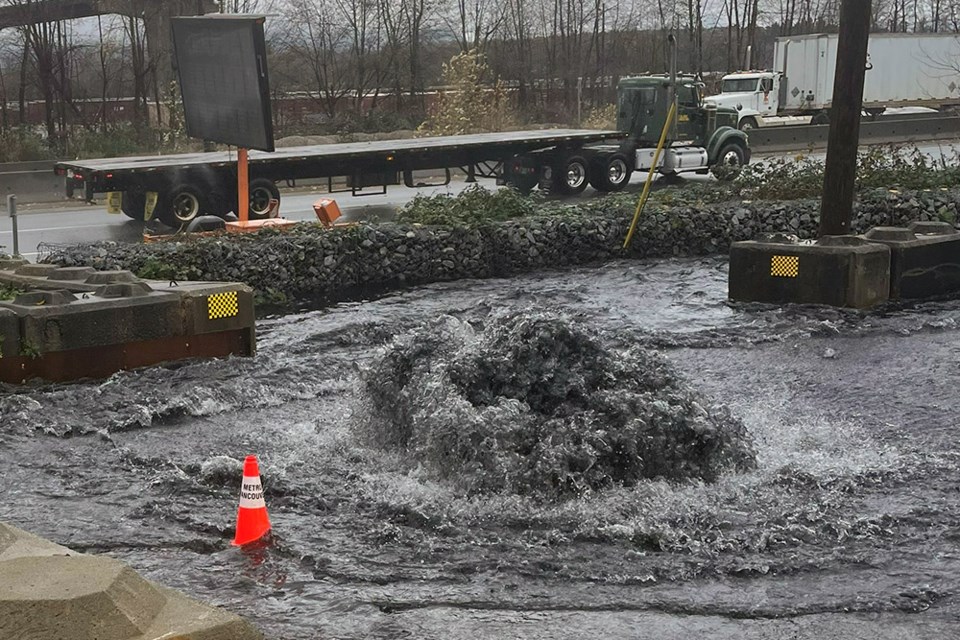Metro Vancouver’s regional government is set to hear a bylaw proposal that would empower it to hand out fines for actions that threaten its sewer system.
In a report to the government’s liquid waste committee, Metro staff propose a number of penalties to encourage compliance with six bylaws designed to protect its regional wastewater system.
The bylaw aims to lower the number of people dumping the wrong thing down the drain or toilet. It targets a number of heavy sewer users, such as hospitals; sani-dump facilities; trucked liquid waste haulers; as well as breweries, wineries and the region's 14,000 restaurants.
To date, the only avenue Metro Vancouver has had to seek compliance with its sewer bylaws is through education, letters and prosecution. But turning to the courts is a time-consuming and expensive process, and charges require a high bar to be approved, according to Metro staff.
“There's nothing in between,” said Maari Hirvi Mayne, Metro’s program manager for enforcement. “We have been trying for decades to get the authority to issue notices of bylaw violation for liquid waste violations.”
“It's an enforcement tool that we haven't been able to use.”
Penalty system meant to promote compliance, not revenue: Metro
The more than 50 proposed penalties range from $95 to $500 each, but only would be issued after warnings were ignored, said Mayne. In the worst of cases, Metro would have the authority to issue up to $10,000 in fines per day.
That's far less than the $200,000 a day Metro can currently fine people for breaches of its solid waste bylaws, or the $1 million-a-day limit set for breaches of air quality standards.
Mayne said the money from the violations would presumably go into Metro's general revenue but stressed the fines were not a money grab.
“This is not a money making kind of situation. Again, it's primarily a deterrent,” she said.
Some of the penalties would apply to discharging waste at non-designated facilities, others for failures to pay treatment fees or keep discharge levels below limits. In hospitals, Mayne said they're most concerned about things like biomedical waste, lab chemicals and spent drugs.

Another big concern, said Mayne, is the installation of grease interceptors. Usually found in commercial kitchens, interceptors separate and remove or retain fats, oils and grease from wastewater before it's discharged into a sewer.
Without those traps, the greases can combine with sanitary pads, wet wipes and dental floss, and cause major problems in the form of 'fatbergs' that together cost Metro Vancouver more than $5 million a year to unclog.
In the past several years, a number of extreme rain events have led to overflow incidents, in some cases scattering raw sewage across public roads and prompting Metro Vancouver to create a real-time warning system.
It's a challenge faced by municipalities around the world, made worse as climate change makes extreme rainfall events more frequent and more powerful than current infrastructure can manage.
Businesses worried about increased costs
Many of the companies or businesses who could be affected by the fines sought exemptions to grease interceptors re-inspection fees in the lead up to the proposed bylaw.
Metro responded saying it wasn’t considering exemptions, but would consider giving businesses more time to come into compliance with that bylaw, according to a September 2023 summary of engagement with food industry representatives, grease haulers and plumbers, among others.
Some of the businesses also raised concerns about installing grease interceptors on floor drains, which might require expensive renovations. Metro responded by adjusting requirements so the grease traps were only required on sink drains.

Alongside the fines, the latest proposed liquid waste bylaw would also create a dispute resolution process and allow Metro Vancouver to publish the names of sewer scofflaws on its website — excluding personal information — as a form of deterrence, according to the staff report.
“We can say, look, we've tried to educate, we have tried to promote compliance,” said Mayne. “And we may have to take this to the next step. But again, the focus will always be on that compliance promotion.”
Should the liquid waste committee pass the latest bylaw proposal and allow the body to fine businesses for sewer infractions, it will be sent to Metro Vancouver’s board for approval.
Metro waste services in the red
The proposed sewer fines come as Metro Vancouver revealed a decline in its latest annual surplus.
In presentation slides set to be seen by the liquid waste committee Wednesday, director of financial operations Linda Sabatini notes Metro’s nearly $12.8-million annual surplus in 2023 was lower than the $36.6-million surplus in the previous year. The slide blames inflationary pressures.
Metro Vancouver’s housing corporation buoyed a more than $6.5-million shortfall in 2023 reported by its solid and liquid waste services.
Metro Vancouver says it’s facing a number of design and construction delays surrounding waste-water treatment plants, water mains, and solid waste facilities. Permitting and development delays have also occurred in its housing and parks projects.



